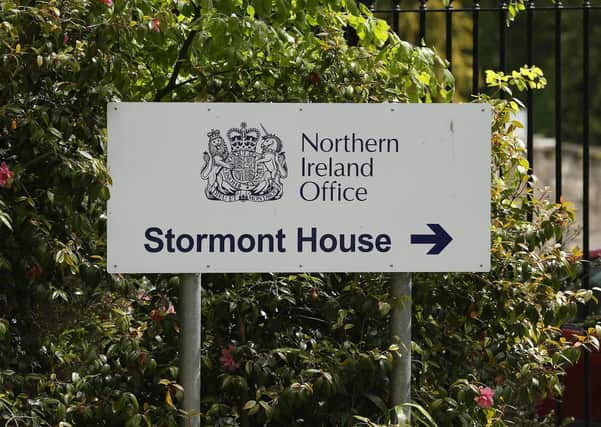Plans to examine legacy of Troubles raise fears of a ‘police state’ and a ‘gross violation of justice,’ say lawyers


In a dramatic intervention in the debate on how to deal with unresolved issues from past violence, Neil Faris and Peter Smith QC say the 2018 legacy bill would have granted “police powers on people who were not police officers”.
These investigators would have been able “not only to investigate certain crimes but also to issue reports criticising individuals”, which Mr Faris and Mr Smith say would be “a gross violation of the maxim Audi alteram partem — a fundamental principle of justice requiring that no one may be judged to have done wrong without a fair hearing including a fair opportunity to challenge the evidence against them”.
Advertisement
Hide AdAdvertisement
Hide AdWriting in today’s News Letter (see link below), the distinguished pair criticise plans to let a controversial Historical Investigations Unit (HIU) adjudicate against individuals, “whether or not there is any allegation of any criminality” and say that it is only “in a ‘police state’ that the police have such a role — designed to exclude the courts!”
While they acknowledge that the government has retreated from that original plan, they still fear that a new “legacy body will be granted undesirable ‘police powers’”.
Their essay will raise fresh alarm about a political process, which has its origins in the 2014 Stormont House Agreement, that some critics believe is demonising the security forces and rehabilitating terrorism.
The pair say: “It is also noteworthy that the 2018 draft Bill (rightly) contained many protective and supportive provisions for victims and their families. But there were no equivalent protective and supportive provisions for anyone who might have been subject to the interrogation and exercise of police powers by the HIU.
Advertisement
Hide AdAdvertisement
Hide Ad“There was no provision for legal advice, for access to documents, or for a right to adduce evidence or test the evidence allegedly supportive of the criticism of that individual. The point of all this is not only fairness for the individual — it provides checks and balances against the abuse of power by any investigator.”
They add: “If there is any provision in the new proposals that the new body may include criticism of individuals in family reports without adequate defence rights, that also would constitute a breach of the European Convention on Human Rights.”
Neil Faris is a Belfast lawyer who has written extensively on the major legal defects in the Stormont House legacy plan and Peter Smith CBE QC joined the bar in 1969 and was a member of the Independent Commission on Policing in Northern Ireland (Patten).
Space